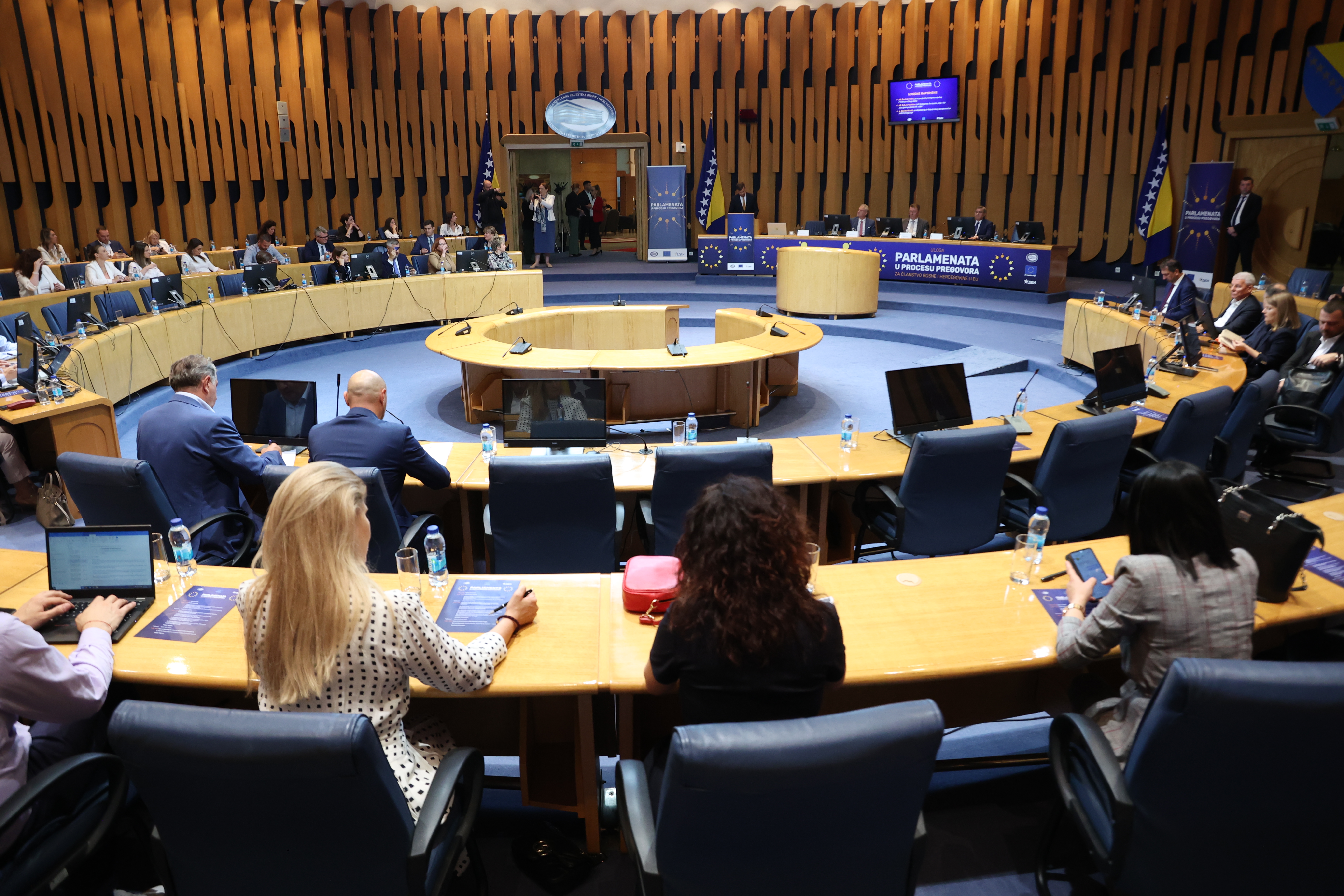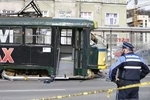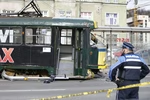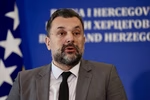Conference highlights the role of parliaments in Bosnia's EU membership negotiations

The European Union Office in Bosnia and Herzegovina, the Joint Committee for European Integration of the Parliamentary Assembly of Bosnia and Herzegovina, and the Directorate for European Integration of Bosnia and Herzegovina organized a conference on Thursday titled "The Role of Parliaments in the Negotiation Process for Bosnia and Herzegovina's EU Membership."
The conference, held today at the Parliamentary Assembly of BiH building, focused on the experiences of countries in the region in negotiating EU membership and the role of parliaments, as well as on aligning Bosnia and Herzegovina's legislation with the EU acquis.
Denis Zvizdic, the First Deputy Speaker of the House of Representatives of Bosnia and Herzegovina, stated before the conference that the role of parliaments in the European integration process is extremely important and irreplaceable.
"We have witnessed and seen examples from all countries, especially those that have become EU members in the penultimate enlargement process and our neighbor, the Republic of Croatia, which joined the EU in the latest enlargement process. They had a very clear plan, a very clear strategy, and a causal connection with what the executive power was doing," said Zvizdic.
He added that for Bosnia and Herzegovina's path to the EU to progress at the desired pace, positive political will is needed, a consensus that the country wants to become an EU member, and a genuine commitment, not just a declarative one, to European integration.
"It is necessary for everyone in Bosnia and Herzegovina to understand that accepting the EU acquis does not mean Balkanizing laws and adapting European laws to the so-called specificities of Bosnia and Herzegovina or the Western Balkans. Because one law cannot apply in Bosnia and Herzegovina, and a completely different one in the European Union," said Zvizdic, adding:
"We must accept European values to become a fully-fledged EU member, which means accepting all laws, the rule of law, and the entire system that is currently the standard in the European Union."
Johann Sattler, Head of the EU Delegation and the bloc's Special Representative in BiH, emphasized that the European Union is not "an ATM where you withdraw cash, but a union of values."
"The European Union was built on the ruins of the Second World War, but these values were actually the foundation for developing the European integration process. Of course, there is significant economic assistance and support provided, but values come first," said Sattler.
He added that legislative bodies play a huge role in the EU integration process, primarily through their legislative function of adopting regulations and acts, as well as EU standards.
"This role is crucial given the vast number of acts, over ten thousand regulations and acts, which will be incorporated into the domestic legal system. Secondly, parliaments have an important role in the oversight they exercise during the negotiation process," said Sattler.
He highlighted that the next step, namely holding the intergovernmental conference between the EU and BiH, is "very feasible by the end of the year, provided that dynamics and activity are restarted."
Zdenko Cosic, Chairman of the Joint Committee for European Integration of the Parliamentary Assembly of Bosnia and Herzegovina, said they expect a discussion and an attempt to define the role of parliaments in the negotiation process at today's conference.
"Today's conference will have an additional dimension as it is of a regional character. We will exchange opinions and hear the experiences of countries from the region that have the same ambitions as BiH. Representatives of the parliaments of Serbia, Montenegro will speak, and we will hear the experiences of Croatia, which has completed the negotiation process and is a full-fledged EU member. We can learn from each other, exchange experiences, learn from achievements and mistakes. We all have our specificities, and we in BiH need to build our model, a pattern that will fit our constitutional structure, our political heritage, experiences, and institutional order," said Cosic.
Kakvo je tvoje mišljenje o ovome?
Učestvuj u diskusiji ili pročitaj komentare





 Srbija
Srbija
 Hrvatska
Hrvatska
 Slovenija
Slovenija


























































